10 Common Catholic Stereotypes, Myths, and Misconceptions
There are lots of wrong ideas about the Catholic Church out there. Are you guilty of believing any of these 10 very common Catholic stereotypes, myths, or misconceptions?
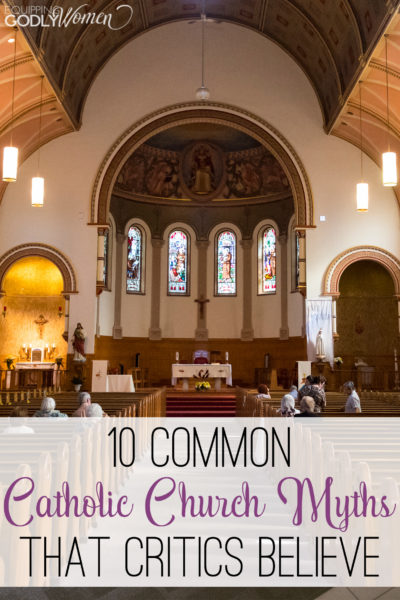
Two years ago, I read a book that would change my perspective on Christianity forever: Surprised by Truth* by Patrick Madrid.
While it (and all of the research I did afterward) wasn’t enough to fully convert me to Catholicism, it did poke some pretty big holes in everything I was taught growing up as a Protestant, and it exposed lots of stereotypes about Catholics that I’d heard.
Things I was so sure of before — basic tenets of my faith — were suddenly glaringly wrong.
It was a pretty tumultuous time, as I reevaluated everything I’d believed my whole life. It was the start of something big, and it was the start of the series you’re reading now.
(You can read the whole series here, if you’re interested.)
Now, two years later, I’m still not fully convinced that Catholic Christianity has it all right. But I’m not convinced they don’t either.
What I do know is that much of what people believe about Catholics and the Catholic church simply isn’t true. Lots of what people “know” aren’t facts — they are Catholic stereotypes that don’t hold up when we dig just a big deeper.
And today, I’d like to set the record straight.
Are you guilty of believing any of these Catholic stereotypes and myths?
*This post contains affiliate links. Please see my full disclosure statement for additional information.
—————————-
A Few Things to Keep in Mind Before We Begin…
1. This post is about official Catholic belief — not what Catholics do in the privacy of their own homes.
What a religion officially teaches and how the people put it into practice are two entirely different things. In this post, I want to replace Catholic stereotypes with accurate information. This post is only meant to talk about what Catholicism actually officially teaches — not what people actually do in the privacy of their own homes or in their local churches.
(There will always be individual people messing things up in every religion)
2. This post is just an introduction to Catholic stereotypes, myths, and misconceptions.
This post is not meant to be an exhaustive guide to everything the Catholic Church teaches and misconceptions about it. That’d be waaaaay too long for a single blog post! It’s simply an overview of 10 of the most common stereotypes about Catholics and their beliefs.
Please see the links below each point to read about each issue more in depth. There are some really great posts in the rest of this series, and they explain these Catholic myths in ways a simple paragraph or two cannot adequately cover.
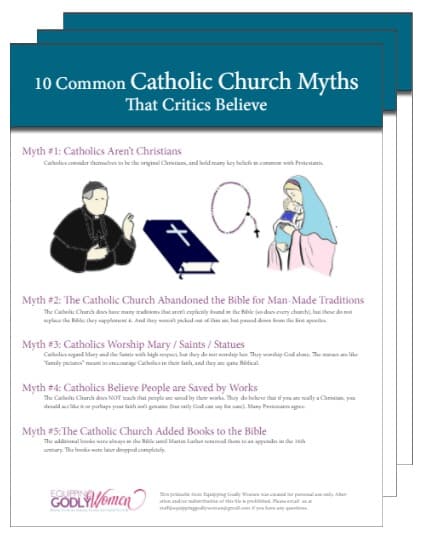
Want to Explore Catholic Stereotypes in More Depth?
I have a free guide that will help you do just that!
“10 Common Catholic Church Myths that Critics Believe” contains all the Catholic stereotypes from this article so you can print them out, refer back to them, and share them with others.
Plus – it even includes 5 bonus myths not included in this article!
If you are looking for information to help you share with non-Catholic family members OR if you’re thinking about becoming Catholic but you still have some questions about Catholic misconceptions — this is a fantastic resource to have on hand.
—————————-
Alright, let’s dive in!
10 Common Catholic Stereotypes, Myths, and Misconceptions
Myth #1: Catholics Aren’t Christians
Actually, Catholics consider themselves to be the original Christians, who are doing their best to hold to the same beliefs and traditions that the church held to in the first century.
According to Catholics, Catholics and Protestants are all Christians, and both Catholics and Protestants can go to Heaven. The Protestant denominations are simply off-shoots of Catholicism (or of other denominations) that branched off over various disagreements about what the Catholic Church was teaching.
Whether Catholics have held fast to the right teachings throughout the ages or whether they veered off and the Protestant denominations got us back on track — that’s something I’m still trying to discover.
This is a big Catholic myth to kick off this post: Even though Catholic stereotype #1 says that Catholics aren’t Christians, the truth is that Catholics are doing their best to follow the teachings of Jesus Christ (and isn’t that one of the things that makes a Christian a Christian?).
Myth #2: The Catholic Church Abandoned the Bible for Man-Made Traditions
While the Catholic Church does have many traditions that aren’t explicitly found in the Bible, so does every church (and so do you, in your home). Traditions themselves aren’t bad. It’s only when we prioritize them over God himself or when they take us farther away from God instead of drawing us near that they cause problems.
One reason that the Catholic Church has so many traditions is that the first century apostles didn’t write down absolutely every single thing they taught. In fact, John 21:25 tells us,
“Jesus did many other things as well. If every one of them were written down, I suppose that even the whole world would not have room for the books that would be written.”
Catholics do their best to value and uphold both the written and oral teachings that were passed down from the apostles. Protestants look to the written teachings (the Bible) only.
The Catholic Church still highly prioritizes Scripture. It just isn’t their only source of information (and nowhere in the Scriptures does it tell us it should be).
Catholic stereotype #2 tells us that Catholics abandoned the Bible, but the truth is that Catholics use the Bible along with written and oral traditions.
For more on this topic, I’d highly recommend my post Who Has the Ultimate Authority? A Biblical Look at Sola Scriptura. You can also find the explanations for many common Catholic traditions in Why Do Catholics…? Honest Answers to Your Burning Questions.
Myth #3: Catholics Worship Mary / Saints / Statues
It’s easy to see how some Catholic stereotypes (like this one) got started, but again, it really is just another of many misconceptions about the Catholic Church.
Catholics do not worship Mary or statues; they worship God alone.
Instead, they “venerate” Mary, which, according to Google, is just a fancy word for “regard with great respect.” Similar to how we would show great honor or respect to a King or Queen, without actually worshiping them, Catholics hold Mary and other saints in high esteem as good examples of how to live a faithful life.
Yes, to Protestants, the practices definitely look like worship, and it’s easy to understand why this Catholic myth is still around. But since worship is an attitude of the heart, I don’t think you can “accidentally” worship someone and not know it. If Catholics’ hearts are in the right place — and they only want to show honor — then it’s not worship.
And it’s the same with statues as well. Catholics don’t worship statues. Instead, they are used as decorations to help Catholics remember people who have gone before, similar to how you might put pictures of your friends and family on your wall, or even a baseball card collection you may have had as a kid.
You look at them, you remember them, but you certainly don’t worship them.
They’re just decorations or teaching instruments meant to inspire faith.
Sure, Catholics might have statues and talk about saints who lived a long time ago. But contrary to Catholic stereotype #3, the truth is that Catholics honor Mary and other examples of faith (even with statues!) while saving their worship for God alone.
*For more information on this, don’t miss my post Do Catholics Worship Mary, Saints or Statues?
Myth #4: Catholics Believe People are Saved by Works
The Catholic Church does NOT teach that people are saved by their works. In fact, the catechism of the Catholic Church actually specifically forbids this notion.
Rather, the Catholic Churches basically teaches that, “If you call yourself a Christian, but you don’t act like it, maybe you’re not really a Christian after all.” Or, “Yes, God saves you through faith, but it’s a living faith that naturally produces good works.”
This Catholic teaching is actually 100% Biblical (here are plenty of Bible verses that support it), and is even taught by some highly respected Protestant/non-denominational pastors, including the most Godly man I’ve ever heard speak, Francis Chan.
This widespread Catholic stereotype #4 says that Catholics believe they can get to Heaven by earning it through good works. The truth is that Catholics see good works as the Spirit-inspired fruit of a heart saved by God’s grace alone.
*For a more in-depth look at this topic, please see my other posts Is Faith Alone Enough? and Are You a Christian? Are you Sure?
Myth #5: The Catholic Church Added Books to the Bible
The books that are currently in the Catholic Bible are the same books that the church has recognized as being in the Bible for centuries. It wasn’t until the 16th century that Martin Luther and the Reformers moved them to the appendix, before they were ultimately taken out.
(For the record, Martin Luther wanted to remove James, Hebrew, Jude and Revelations as well, but was unsuccessful. The books that he did remove are called Tobit, Judith, 1 and 2 Maccabees, Wisdom of Solomon, Sirach, and Baruch.)
Whether or not the additional books should have been left in or taken out — I don’t know. I wasn’t there. Guess you have to ask yourself if the early church could have been wrong for 1700 years and the Reformers knew better than the earlier Christians did.
Either way, I’ve read through all these additional books, and there really isn’t much surprising in them. They read like pretty typical Old Testament books. There are a few verses about praying for the dead, but other than that, I don’t recall reading anything that stuck out as especially “Catholic.”
This Catholic stereotype #5 is a doozy because the truth is actually the opposite — one man decided to take out some books that had been in the Bible for over a thousand years.
*For more information, don’t miss my post on Martin Luther, the history of the Catholic Church, and the Bible books issue.
Myth #6: Catholic Priests Can’t Be Married
(Some) Priests are married! Some even have children and grandchildren. (This happens when a man is already married and a priest in a different denomination and then converts to Catholicism later.)
And of those who become priests the usual way and aren’t allowed to get married–not all of them even want to be. Priests know what they’re signing up for. No one is making them be a priest. They have a choice between God and a wife, and it is their choice to make. No one is forcing them to choose one or the other.
Catholic stereotype #6 is in fact the general rule — but the bigger truth is that the path of some Catholic priests does allow them to marry a woman. And those who don’t often consider themselves to be married to the church, the Bride of Christ.
*For more information, read my post on priests, the Pope and confession.
Myth #7: Catholics Recrucify Jesus at Mass
I haven’t heard this Catholic misconception in real life, but apparently it’s popular. Catholics do not re-crucify Jesus at Mass.
Instead, they believe that Jesus and the crucifixion occur outside the limits of time (because God can do cool stuff like that), and so when they celebrate Mass, they are only making the sacrifice (which has already occurred) “present” on the altar.
While Catholic stereotype #7 imagines Catholics as recrucifying Jesus at Mass, the truth is that Catholics believe they are making the eternal reality present in our non-eternal timeline at Mass.
*For a very interesting and in-depth look at the Eucharist, be sure to check out my post Is the Eucharist Really Just a Symbol? 5 Convincing Proofs that Say that It’s Not.
Myth #8: Catholics Believe Only Catholics Can Go to Heaven
While Catholics do believe their religion is the one true religion and the ordinary (most common) means of bringing people to salvation, it is a common Catholic misconception that they believe this is the only way. Instead, they recognize that God can use any means He wants to to bring people to Himself, including those other than the Catholic church, especially if the person has never had the opportunity or knowledge to join the church.
They believe that Protestants who have no reason to suspect their beliefs are incorrect can go to Heaven, as well as Protestants who were planning to convert before death but hadn’t done so yet.
Furthermore, Catholics do not believe you can say with 100% certainty who will go to Heaven (though you can have a good idea) simply because God is judge and we are not — and who are we to presume to know His thoughts?
Even though Catholic stereotype #8 imagines Catholics as very close-minded about the salvation of others, the truth is that Catholic teaching leaves lots of room for God’s grace to work in every single person’s salvation.
Myth #9: Catholic Priests are Child Molesters
Yes, the Catholic church has had huge and horrible scandals in which some priests were molesting children. This was absolutely awful and shameful, and they will have to stand before Jesus for what they did. That part is not one of the myths about the Catholic Church.
But if you look at the statistics, only a very small minority of priests were involved, and it isn’t really fair to blame the entire Church or dismiss the Church’s core teachings for what a few did. Scandals like this happen in EVERY church and in every city. That doesn’t make everyone guilty of the crimes of a few, and it does NOT mean that innocent Catholic priests deserve negative treatment today because of this stereotype.
It is heartbreaking that Catholic stereotype #9 does have some truth to it — some Catholic priests have molested children. But the truth is that the vast number of priests are men who serve God humbly and who shepherd their flock instead of harming the sheep.
*For more information, be sure to check out my series post on priests, the pope and confession.
Myth #10: The Catholic Church is Anti-Women
The church isn’t anti-anyone. They do believe birth control is morally wrong — the same thing every denomination believed until 1930. But when pretty much every other denomination began to change its mind, the Catholic church held its ground on this teaching. They continue to teach the same thing today, even when this gets interpreted as an “anti-woman” Catholic misconception.
The Catholic church also doesn’t allow women to be priests, which has upset many. But if you look at their rate of women in non-priest leadership positions, it is WAY higher than average. The Catholic church may not do things the “feminist” way, but they do hold women in very high esteem, even referring to them as the “crown of creation.” That’s pretty special if you ask me 🙂
So while Catholic stereotype #10 paints the Catholic church as an “anti-woman” institution, the truth is that many women are in leadership positions in the Catholic church, and the Catholic church holds women in very high regard.
Like I said earlier, the intent of this post is ONLY to dispel a few stereotypes about Catholics so that, going forward, your thoughts and opinions aren’t swayed by misinformation. I’m not trying to convert or persuade, just to present you with some information about Protestant and Catholic beliefs so YOU can make an informed decision of your own. 🙂
Ready for more? You can read through the rest of the posts in this Catholic vs Protestant series here OR see what I ended up deciding in my latest Catholic update post here.
I’d love to hear your thoughts and opinions on these Catholic stereotypes and myths, or others you’ve heard! Leave me a note (or a book 🙂 ) in the comments section below!
—————————-

Ready for More?
Honestly, these 10 stereotypes are just the start. Download the print version to get a handy guide you can refer to later or share with others AND get 5 bonus Catholic myths that aren’t included in this article!

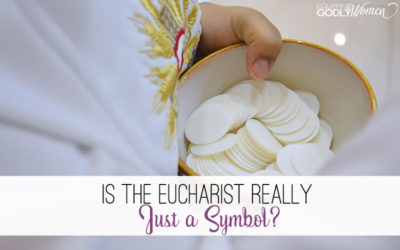
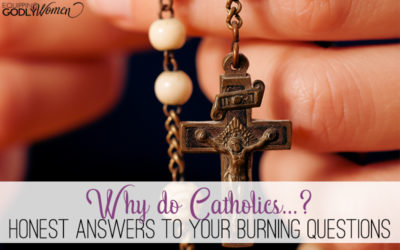
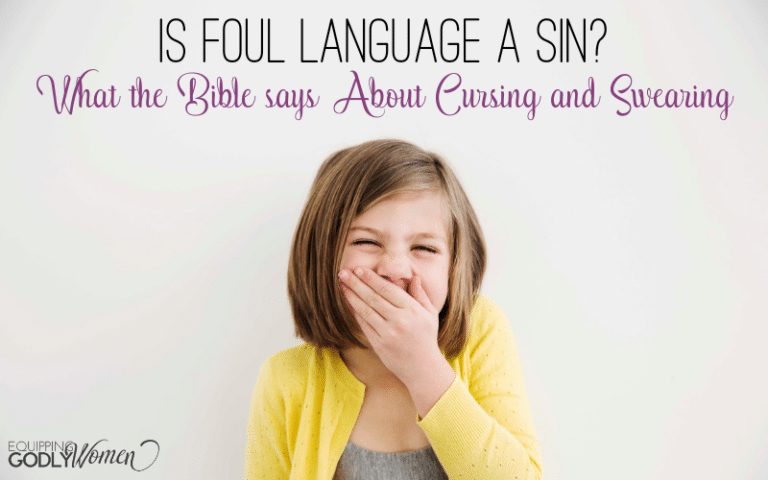


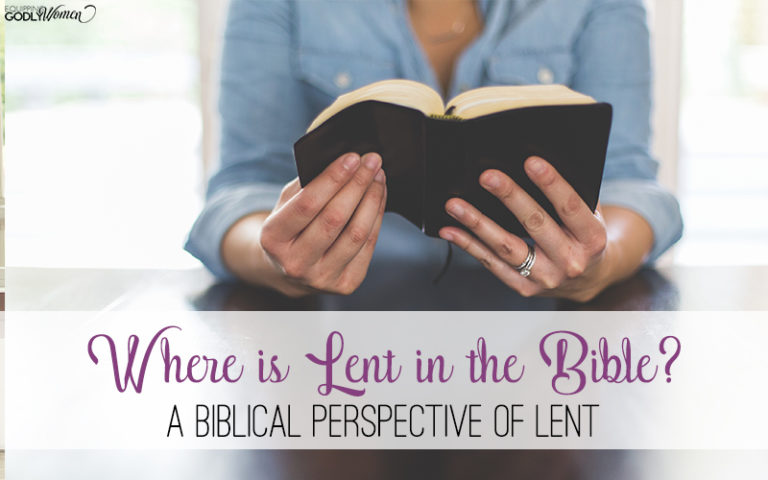

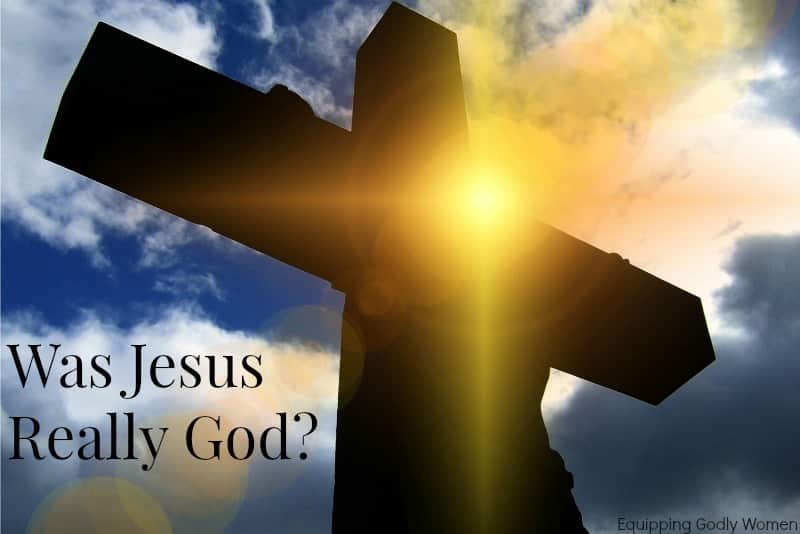
A little clarification. A married man that converts cannot become a priest. An ordained man in a protestant religion who is married can convert and become a priest while married but he has to be ordained in his old religion before he converts. For instance, an Anglican priest that is married converts to Cathloicism, he can become a priest and remain married. I am married and converted but I cannot become a priest because I was not an ordained priest in the Episcopal Church before I converted.
I just wanted to say that I am enjoying this series! I am an Eastern Orthodox Christian, and many Protestants have misconceptions about us, too. You’ve inspired me to consider writing a similar post about common misconceptions about Orthodox Christians. I’ll be sure to let you know when I do! (By the way, AMAZING discussion in the comments. I’m very impressed with your responses to all of the comments. Well done.)
Yes, please do send me the link when you publish it! I’d love to read it! (and thanks 🙂 )
Oh God, I seriously thank him for this post by someone who doesn’t consider herself catholic. I didn’t even know some of these issues existed. I wish I could read all the comments but that’s a seriously long list. God bless you. I grew up catholic, and I grew up in Mexico, where 98% of the population is Catholic. Number 8 of the myths was my favorite for some reason. My mom says that when you are good person, even if you’re a Buddhist or even an atheist, there is still a chance you can go to heaven. Nobody knows who goes in, only God. So no religion should be judgmental about this.
I don’t want to make this post long, because I could, and I haven’t really explored your site enough, but if you could make a similar post about the protestant church it would be awesome.
This is really refreshing, thank you.
I encourage you to create a forum, where reading is easier. I hope you do that. God bless you.
Not sure where you stand on the issue from your comment, but unfortunately, just being a good person really is NOT enough to go to Heaven. Sure, there is always a *chance,* because we’re not God and we can’t ultimately judge the state of someone’s soul, but “being a good person” really isn’t the measuring stick God uses…
And yes, I’d love to create a forum, but that would take a LOT of time, effort and cost, so it simply isn’t practical right now… Maybe someday!
Reading your 9th myth, I would add (and ask readers to check for themselves) that the ratio of men in America that become pedophiles is 4% which is the same as in the Church. The public school system has an even larger percentage rate in both men and women and tragically, they are swept under the rug and I haven’t seen any movies made about this wide spread and under publicized horror.
I’ve heard that too (that the teacher percentage is higher). Wish it were 0 all around, but at least priests aren’t deserving of the bad rap they get, so that’s a start…
Very well put! I am Catholic by choice. I converted after spending a life time in the Protestant church and knowing from a very young age around 8 that they had it all wrong. It took me till 23 to find the church.
I wanted to comment on the worshipping Mary and the saints. Venerate is a great word but its so much more than that. I have always loved that we have a perfect mother in heaven who can wisper in Christ’s ear. So its like having your closest friend sitting right next to God who can advocate on your behalf
Yeah, that’s the way I’ve heard it put many times too. The problem isn’t with that analogy, thought, it’s the fact of — why go through someone else at all when you could speak directly to God Himself?
Ex Catholic here. This is nonsense from people trying to appease us Christians who have been enlightened. Catholics DO worship statues, Mary, guilt you into acting in a way they see right, encourage and cover up predatory priests, and many of the things they believe go against the Word of God! Most of my family is no longer Catholic and I am well on my way to converting my husband so our children are not raised with this nonsense. A believer needs 2 things to be saved: faith in Jesus and honest repentance of sins. Extras are a NIV Bible, and Bible believing church, and Christian friends for accountability. My Catholic family are some of the most hypocritical and judgemental people I know. Millions are leaving the Catholic Church and this is a good thing!
Like I said on your comment on my other post, what individual people do and what the church officially teaches are two very different things.
That’s like if a dr were to give a sick person medicine, and the person didn’t follow the instructions but did as they pleased. When the person didn’t get better–is that the doctor’s fault? No. It’s the person’s own fault for messing it up. There was nothing wrong with the medicine itself.
Now, I’m not convinced if Catholicism is right or wrong–still looking into it–but either way, the decision needs to be based on what the Church actually officially teaches, not how people mess it up.
More teachers are child molesters than priests, statistically speaking. Does that mean the educational system as a whole can’t be trusted for that reason? No one runs around talking about teachers in that way. Because the fault is on the person or persons involved, not the core concepts behind the system as a whole. If Catholics cover it up–that’s on the Catholics. But that has nothing to do with whether or not the church’s teachings are true/false.
Hope that makes sense!
Very well said and an excellent analogy about the doctor prescribing medicine!
Hi,
The truth of the matter today is that the conversion of non-catholics to catholicism is massive and huge today more than ever in the western world.
One of the reasons is probably because more of the world can read and write to keep it basic.Its not the 1800s where what the preacher (catholic or protestant),said about other believers was the gospel truth unanimously.
Am a cradle catholic who has gone through the phase of searching for truth and without a shadow of doubt have foud it back in The catholic church.I almost got drawn away by the noise from the outside and all the false stories fabricated or twisted and believed universally as the (Truth)about the church.RCC is one rite among other catholic rites.
Had to go back from the begining and read the history good and bad about the church.With the bible and history travelling through the centuries.Read about the early church Fathers and realise their Belief is familiar to what catholics believe today.Now if these students of the apostles of Christ did worship this way,believed in The Eucharist,Respected Mother Mary ,I dont believ that 15centuries later all that Christ established was a lie until the reformation of middle ages.He said he would never leave his church ever.Did he just not mean that for 15 centuries?
The truth stares at you in the Face when we take the history lesson and really open our hearts and mind to understand.What to believe in is a personal choice though.
Mother Mary sure does deserve the respect of believers.She is the greatest intercessor in the whole world.How does he say no to his own moms requests when she
presents our cases to the Saviour?Who we all agree on across christendom.
Thanks for taking the time to bring awareness to the topics I’ve battled with when people say ” Oh your Catholic? ” but don’t you believe ….?
And proceed to stare as if I have leprosy
lol. you’re welcome. unless you have leprosy… 😉
Thank you. It was well written and it seems accurate. I grew up Catholic. I do believe because, man is in every religion things can be corrupted. But, the core teachings come from Christ and He will know exactly what is in each of our hearts.
Thanks, Cathy! That’s an important distinction I try to make too–not how man messes things up, but what the core teachings actually are.
Hey Everyone,
If you want some great answers to ALL of your questions regarding Catholicism, check out the EWTN show Called to Communion with Dr. David Anders. He was once a Protestant who was raised VERY anti-Catholic. Now he answering YOUR questions regarding the basic tenets of our faith. There’s also a podcast you can listen to as well. If you want, there’s also a show called “Catholic Answers.” This is also on a podcast as well as on YouTube. These people know exactly what they’re talking about and they would love to answer your questions. I hope this helps. Great article to start with.
Hey! You were mostly right, except about priests getting married:) it’s true that within the Latin Rite of the Catholic Church (the Roman, or Western Catholic Church) that priest can only be married if they were prior to becoming a priest. BUT there are 23 other Catholic Churches throughout the world that are in communion with the Pope. Most of those churches allow their priests to be married even after ordination!
Honestly I think it is so cool, that as a Catholic I can receive communion in any of the 24 Catholic Churches, and that each has its own unique way to doing things tho we all hold the same central beliefs
Thanks for the additional info! That one point seems to need a little extra clarification 🙂